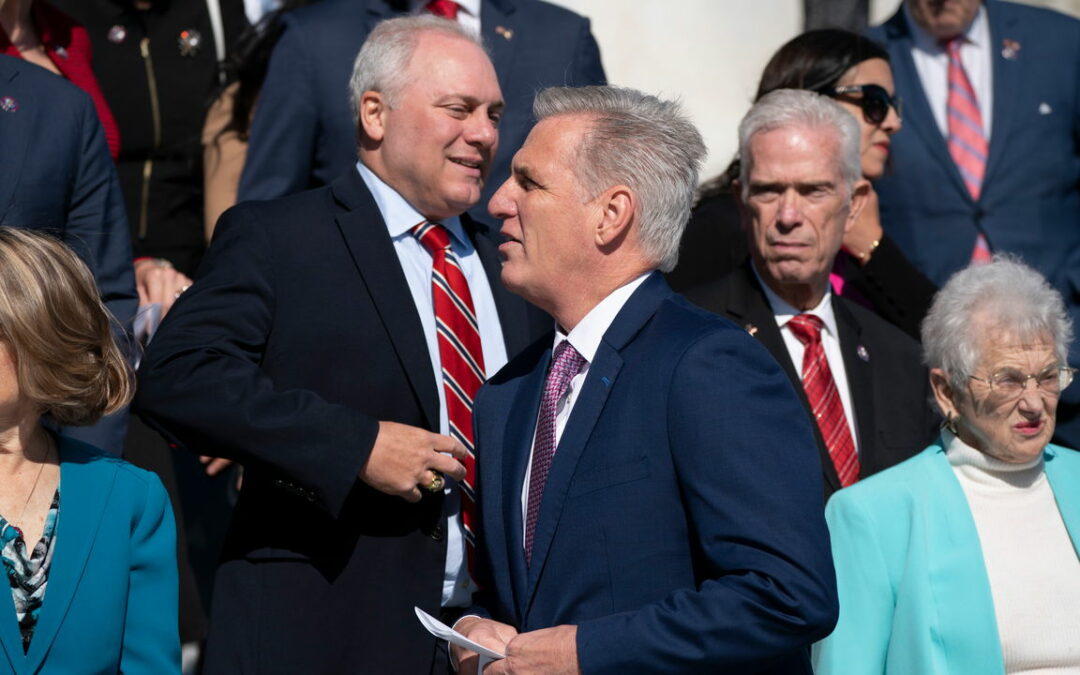AMERICA’S HOUSE OF REPRESENTATIVES has been without a permanent speaker since October 3rd, when a handful of Republican rebels ousted Kevin McCarthy. Days later an attack thousands of miles from Washington, DC, highlighted the urgency of the problem: on October 7th Hamas, an Islamist group based in Gaza, attacked Israel, killing at least 700 people and taking dozens of hostages. America’s defence secretary, Lloyd Austin, has promised to send munitions and military aid to Israel. But until a new speaker is selected, no bills can be brought before the House, curtailing America’s ability to support its ally in the longer term. Lawmakers are frustrated. Mike Lawler, a Republican congressman from New York, described the situation pithily as “an unmitigated shitshow”. How will it be resolved?
Mr McCarthy’s sacking was unprecedented: the House had never before voted to remove its speaker. On October 2nd Matt Gaetz, a fellow Republican, filed a “motion to vacate” which triggered a vote of confidence in Mr McCarthy. Previous Republican speakers threatened with a similar fate had jumped before they were pushed. In 2015 John Boehner resigned after being threatened with such a motion. (Thomas Massie, the lawmaker who co-authored it, has a framed copy in his office.) Newt Gingrich, who oversaw the party’s return to power in the House in 1994, stepped down four years later after taking the blame for midterm-election losses.
In both cases the party swiftly coalesced around a successor. That looks less likely this time. To be elected speaker a candidate needs to command a majority in the House, meaning 218 members. The Republicans’ slim majority—221 seats to Democrats’ 212—leaves little room for disunity. In January it took 15 excruciating rounds of voting to install Mr McCarthy as speaker because a small group of rebels from the party’s far right withheld their support.
On October 10th House Republicans will hold a candidate forum, where nominees will make their pitches. An internal election is scheduled for October 11th. The race appears to be between two men, both deeply conservative. Steve Scalise, the House majority leader, is a powerful fundraiser from Louisiana. Jim Jordan, a hardliner from Ohio, was a founder of the House Freedom Caucus, an ultra-right-wing group that has bedevilled the Republican leadership since its formation in 2015. Donald Trump has endorsed Mr Jordan.
Many Republicans want the decision to be made behind closed doors. Some even want to change the rules governing the nominating process to require a candidate to win a unanimous victory in the internal election, rather than a simple majority. That proposal, though impractical, illustrates the party’s fears about the deepening of its divisions playing out in public. A televised debate between the candidates, to be hosted by Fox News, was planned for October 9th but quickly scrapped.
For now the House is operating under the stewardship of Patrick McHenry, a Republican from North Carolina, who is acting speaker. His powers, as yet untested, appear to be extremely limited. Under the terms of a stopgap deal struck on September 30th to prevent a government shutdown, the House needs to pass a spending package by November 17th. It is not clear that these things fall within Mr McHenry’s remit. Ken Bucks, one of the eight rebels who voted to oust Mr McCarthy, has an unorthodox idea to speed up the selection of his replacement: lock the doors of the House Republicans’ gathering and limit bathroom and food breaks to “make sure we get the job done”. ■









